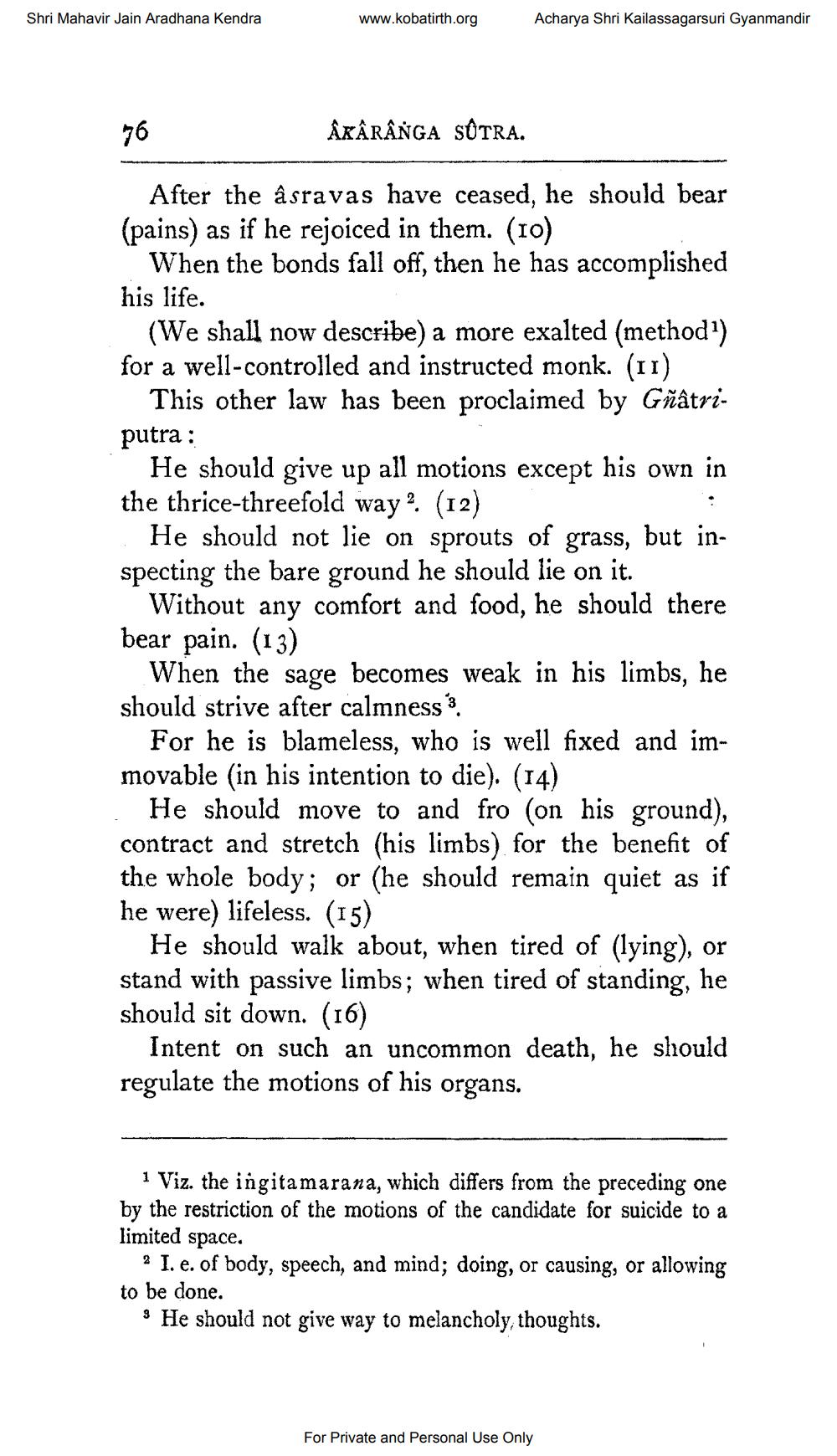________________
Shri Mahavir Jain Aradhana Kendra
www.kobatirth.org
AKARANGA SUTRA.
Acharya Shri Kailassagarsuri Gyanmandir
76
After the âsravas have ceased, he should bear (pains) as if he rejoiced in them. (10)
When the bonds fall off, then he has accomplished his life.
(We shall now describe) a more exalted (method1) for a well-controlled and instructed monk. (11) This other law has been proclaimed by Gñâtriputra:
He should give up all motions except his own in the thrice-threefold way2. (12)
:
He should not lie on sprouts of grass, but inspecting the bare ground he should lie on it.
Without any comfort and food, he should there bear pain. (13)
When the sage becomes weak in his limbs, he should strive after calmness 3.
For he is blameless, who is well fixed and immovable (in his intention to die). (14)
He should move to and fro (on his ground), contract and stretch (his limbs) for the benefit of the whole body; or (he should remain quiet as if he were) lifeless. (15)
He should walk about, when tired of (lying), or stand with passive limbs; when tired of standing, he should sit down. (16)
Intent on such an uncommon death, he should regulate the motions of his organs.
1 Viz. the ingitamarana, which differs from the preceding one by the restriction of the motions of the candidate for suicide to a limited space.
2 I. e. of body, speech, and mind; doing, or causing, or allowing to be done.
" He should not give way to melancholy, thoughts.
For Private and Personal Use Only




